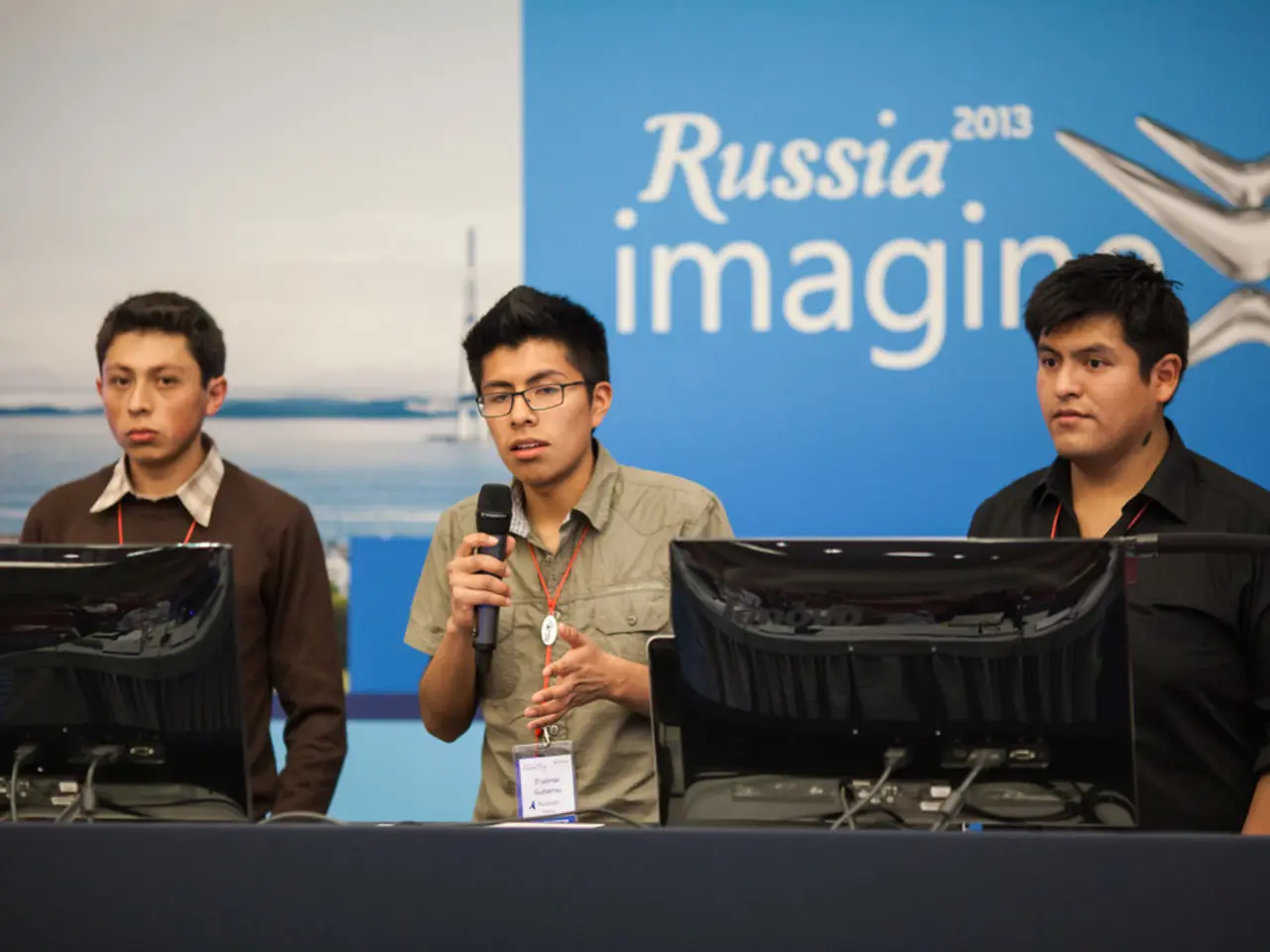European leaders have lost their direction
In a significant shift, the US-Russia relationship is undergoing changes that may lead to a new system of agreements. This development has sparked concerns and confusion among European leaders, as the future of European defense and NATO cohesion hangs in the balance.
The White House summit, which included European leaders, underscored an agreement to provide some European boots on the ground to enforce a potential peace settlement in Ukraine. However, the exact nature of these "Article 5-like" guarantees remains vague, as Ukraine is not a NATO member. This security arrangement challenges traditional deterrence paradigms and raises uncertainty about the future of European collective defense.
The US has closed the possibility of Ukraine joining NATO and has imposed significant expenses on Europe in the NATO field. This decision may test the alliance's unity and effectiveness, as the US and European leaders showed a willingness to offer Ukraine security guarantees similar to NATO's Article 5 collective defense clause, but without granting Ukraine full NATO membership.
The Kremlin's demand that Russia and China be involved in security guarantees further complicates the situation, potentially giving Russia veto power over Ukraine's future security choices and undermining NATO unity. This strain within NATO tries to balance deterrence against Russia with avoiding escalation into a direct NATO-Russia conflict.
Some European nations, such as France, hope for increased bilateral relations, while others, like Hungary, may see an opportunity to increase their role in international affairs. The Italian right values the relationship with the US, even if it means dismissing Trump's unpredictable actions as part of a broader negotiation on European defense.
The French intellectual world sees a Russian victory in Ukraine as an opportunity to free Europe from American influence. Alan Todd, a French intellectual, believes that a Russian success in Ukraine could lead to NATO's disintegration and Europe's freedom. JD Vance's speech in Monaco was a clear indictment of the European model of freedom and guarantees.
Europe's leadership is currently in a state of confusion, which may endorse a vision of Europe as decadent and incapable of autonomous action shared by Trump and Putin. The political forces of Europe, particularly those with sovereignist and conservative leanings, are struggling to adapt to a world where the US may prioritize new agreements with Russia over traditional European defense understandings.
In sum, the US and Europe are attempting a delicate middle ground: supporting Ukraine's defense without fully expanding NATO commitments, which could test the alliance's unity and effectiveness. Some see this as a practical concession that risks signaling NATO disintegration or weakening in the face of Russian pressure, while others view it as a pragmatic evolution of European security policy in an unprecedented conflict.
History is running ahead of those who can't keep up, as seen by the sudden resumption of contacts between the White House and the Kremlin. The White House has implied that Europe may be forced to choose between endorsing parts of Ukraine being ceded to Russia or facing the US withdrawal from the situation. This poses a significant challenge for European leaders, who are seeking an agreement that allows them to save face in the current situation.
[1] ABC News, "White House Summit: US, Europe Agree on Ukraine Security Guarantees," 2025. [2] The Guardian, "European Leaders in Confusion Over Ukraine Security Guarantees," 2025. [3] Reuters, "NATO Strain: US and Europe Balance Deterrence Against Russia," 2025. [4] The Economist, "A New Era in US-Russia Relations: Implications for European Defense and NATO," 2025.
- The discussion regarding Ukraine's security guarantees, reminiscent of NATO's Article 5, has raised concerns about war-and-conflicts and policy-and-legislation in European politics, as the future of Ukraine and NATO cohesion remains uncertain.
- The potential for increased bilateral relations between Europe and Russia, as some European nations hope, could significantly impact general-news issues such as crime, politics, and defense policies, potentially reshaping the geopolitical landscape of Europe.








